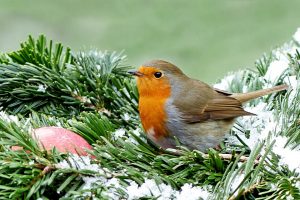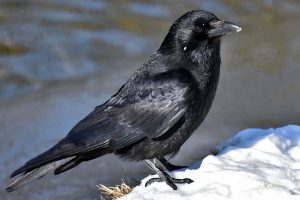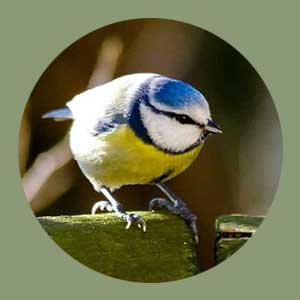The recent plummet in temperature made me wonder if birds feel the cold and if so, how they overcome it. Humans can add an extra layer or two or huddle around a fire, do feathers have the equivalent warming effect on the garden birds?
Yes, birds do feel the cold, and for those that simply cannot adapt to the climate, there is migration. 29 species of summer migrants appear in the UK in spring to raise their brood, they then head for warmer climates as Autumn begins to fade. These include swallows, flycatchers, and whinchats. Even the blackbirds may make their way to Eastern Europe when January becomes too cold to bear.

Birds are warm-blooded creatures, and as such have temperature regulating systems to keep their body temperature at a constant level. However, when outdoor conditions are particularly harsh, this isn’t always enough and birds adopt varied methods to stave off the cold.
How Birds Keep Warm
Extreme cold weather can be disastrous for the bird population. They can catch hypothermia, get frostbite, and small birds can even freeze to death.
Many species have adapted their behaviour to ensure they survive the winter.
- The first thing that they do is retreat to a sheltered, secure spot. They huddle in roosts and cavities, anywhere that offers protection from the cold but allow a view of any incoming predators. Huddling close to the trunk of a tree is a good resting spot during warmer months, as the tree will have retained the heat from the day. However, if there is no heat and the branches are sparse, it offers little protection in winter.
- Feathers are the bird’s natural insulation. When temperatures drop and light diminishes, birds fluff up their feathers to trap tiny pockets of air between the layers. This increases any body heat and retains it, and keeps out the cold.

- If you have ever seen a bird with its head tucked under its wing and wondered if he’s just having 40 winks, he probably is, but it is also a clever method of keeping warm. Their nostrils,(nares) are buried into their plumage, where the air is naturally warmer due to body heat. As they sleep they are automatically breathing this warm air in.
- Many birds can lower their body temperature and slow their heart rate and metabolism to survive. This is called a state of torpor, and works as the bird will use fewer calories to maintain normal life functions, such as breathing. This conserves energy and body heat for when they need it most.
- Birds that roost together in large communities will use their natural body heat and huddle together to keep each other warm.
It is a wondrous sightseeing a branch full of wrens cuddling together and performing a little jiggle to stay warm.
Final thoughts…
It doesn’t matter how unseasonably cold it gets, parents never leave their chicks. The main duty of the adult is to keep the babies warm by sharing their body heat and regular feeding.
Yes, birds do feel the cold, but they are innovative creatures that adapt to their surroundings and stay warm in harsh conditions. Thankfully, their feathers offer some insulation and the oily coating makes them waterproof, there is nothing worse than being cold AND wet.
